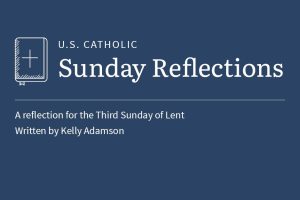American birthright citizenship is downright Constitutional.
The birther movement is at it again. No, I’m not talking about the fringe group that insists, in defiance of all evidence to the contrary, that President Barack Obama is not a native-born citizen.
The birther movement I’m talking about is fixed on repealing the 14th Amendment, a Civil War-era addition to the Constitution clarifying the citizenship of freed slaves that confers instant citizenship on any person born in the United States or any of its territories, military bases, or assorted colonial leftovers. The birth prohibitionists fixate on reports of a gazillion or so migrants each year scheduling U.S. visits to coincide with due dates so their children become so-called anchor babies, offering a toe-hold for undocumented parents and siblings.
If that were actually the case, maybe we should just be gratified that there are folks who have such a high esteem for U.S. citizenship, entrepreneurial instincts, and acute long-term planning skills (anchor babies’ citizenship doesn’t “pay off” until age 21) and leave it at that. But there’s plenty of reason to doubt the veracity of the “drop and leave” migrant delivery South Carolina Senator Lindsey Graham so charmingly describes and plenty more reason not to use sociological myth-making to screw up what has been one of the hallmarks of the promise and generosity of American life.
Birthright citizenship in truth is practiced by a minority of nations around the world, but it’s a civic tradition in the United States that is rooted in English Common Law and long predates the 14th Amendment’s codification. Were it not for our acceptance of birthright citizenship, a great many “Americans” born in the 18th and 19th centuries to economic migrants from European backwaters like Ireland and Germany would not have been able to become citizens. After decades of accepting citizenship by birth, this tradition has suddenly become controversial. What’s changed?
Increased socio-economic uncertainty always brings out the worst in America’s nativist impulses, now unironically adopted by the children and grandchildren of immigrants. Politicians looking for editorial traction have settled on the issue as a public relations winner. But something uglier is also at work. You don’t have to venture too far into the cyber underbelly of the 14th Amendment repealers before an atavistic ugliness becomes obvious–and odious.
We already know what stratified citizenship looks like. Generations of Japanese born to Korean parents are still marked as less than equal. Without fail, such gradations of citizenship lead to structural discrimination, labor exploitation, and frequently outright physical violence against the diminished partner in nationhood. The notion of degraded citizenship can lead to a permanent underclass and generations of unresolved tension and resentment.
That’s why America’s insta-citizenship, which confers not only the rights and privileges of U.S. citizenship on the native-born but also the responsibilities and obligations, shines so brightly as a beacon of human dignity. Using native birth as a standard for citizenship is eminently reasonable. It is fortuitously uncomplicated; it speaks to our best traditions as a republic. This clear principle inoculates American democracy from unseemly and potentially hazardous debates about how to define “real Americans.”
Catholic teaching can contribute to this conversation before it becomes too overwrought. We refuse to condemn those who migrate out of economic or political necessity. We acknowledge our scriptural obligation to protect and support the sojourner and the vulnerable. We embrace and defend the sacredness of life.
The anchor baby prohibitionists can certainly find anecdotal evidence to support their broad suspicions, but most of the people having children in America, whatever their legal or visa status, do so because they are open to life and want to be a family together. Our tradition has been to welcome that life into the world with them.
Welcoming, not denigrating the newcomer, has made us a stronger nation and a better people. That will continue to be true no matter how much rhetorical heat the 14th Amendment revisionists are able to generate before November.
This article appeared in the October 2010 issue of U.S. Catholic (Vol. 75, No. 10, page 39).
Image: Tom Wright















Add comment